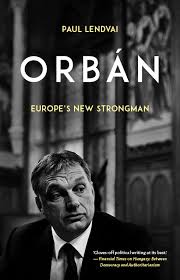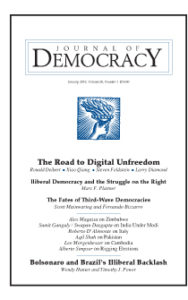 Hungary’s Prime Minister, Viktor Orbán, is often accused of promoting a form of ‘illiberal democracy’, where governance is rooted in the popular support of a majority of the country’s citizens, but without a strong guarantee of minority rights and the rule of law.The University of Exeter’s Lise Esther Herman argues that this criticism, which has been put forward by many of Orbán’s opponents, overlooks that it is not only liberal principles that are being trampled on in Hungary, but also the notion of popular sovereignty itself.
Hungary’s Prime Minister, Viktor Orbán, is often accused of promoting a form of ‘illiberal democracy’, where governance is rooted in the popular support of a majority of the country’s citizens, but without a strong guarantee of minority rights and the rule of law.The University of Exeter’s Lise Esther Herman argues that this criticism, which has been put forward by many of Orbán’s opponents, overlooks that it is not only liberal principles that are being trampled on in Hungary, but also the notion of popular sovereignty itself.
A change of approach to the Hungarian problem is needed, she writes for the LSE’s Europp blog:
Sanctioning individual measures contains the issue somewhat, but it fails to address the broader issue of regime change at stake. The piecemeal method maintains the illusion that the problem we are faced with is primarily one of illiberalism, and thus of the violation of minority rights that can partly be redressed through judicial action. In the meantime, we lose track of what Fidesz is doing: crippling the sovereign expression of the Hungarian People and, in the process, destroying not only liberalism, but democracy itself.
 Will right-of-center politicians and intellectuals join Hungary’s Viktor Orbán in his embrace of “illiberal democracy”? Marc F. Plattner asks in Illiberal Democracy and the Struggle on the Right, an article for The Journal of Democracy:
Will right-of-center politicians and intellectuals join Hungary’s Viktor Orbán in his embrace of “illiberal democracy”? Marc F. Plattner asks in Illiberal Democracy and the Struggle on the Right, an article for The Journal of Democracy:
Orbán seeks to use the dissatisfaction of conservatives with “liberal” social and cultural policies to pry them away from their fundamental commitment to liberal democracy. But his motives are also more narrowly partisan, as he candidly revealed both in his July 28 speech and in an earlier speech delivered on June 16 at a conference honoring the memory of Helmut Kohl, the Christian Democrat who served as German chancellor from 1982 to 1998. Orbán made it clear that his goal is to take over the mainstream European right and to shape its future direction.
Indeed, having consolidated power in his own country, he is turning his attention to the E.U., Elisabeth Zerofsky writes for The New Yorker.
 “[T]he new state that we are constructing in Hungary is an illiberal state, a non-liberal state,” said Orban, who thrives on conflict. “There is an alternative to liberal democracy: it is called Christian democracy,” he said at a recent gathering:
“[T]he new state that we are constructing in Hungary is an illiberal state, a non-liberal state,” said Orban, who thrives on conflict. “There is an alternative to liberal democracy: it is called Christian democracy,” he said at a recent gathering:
“And we must show that the liberal élite can be replaced with a Christian-democratic élite.” Orbán offered some clarification. “Liberal democracy is in favor of multiculturalism, while Christian democracy gives priority to Christian culture,” he said. “Liberal democracy is pro-immigration, while Christian democracy is anti-immigration.” Referring to the upcoming European elections, he added, “The opportunity is here. Next May, we can wave goodbye not only to liberal democracy and the liberal undemocratic system that has been built on its foundations but also to the entire élite of ’68.”
Many conservatives, of course, including most of the still dominant center-right parties in Europe, remain committed to liberal democracy, adds Plattner, the cochair of the Research Council of the National Endowment for Democracy’s International Forum for Democratic Studies. But today’s intellectual and political currents do not appear to be trending their way. The May 2019 elections to the European Parliament will be a key test for all European political groupings. But the most interesting and consequential developments for the future of liberal democracy are likely to emerge from the internal struggles on the right. RTWT







